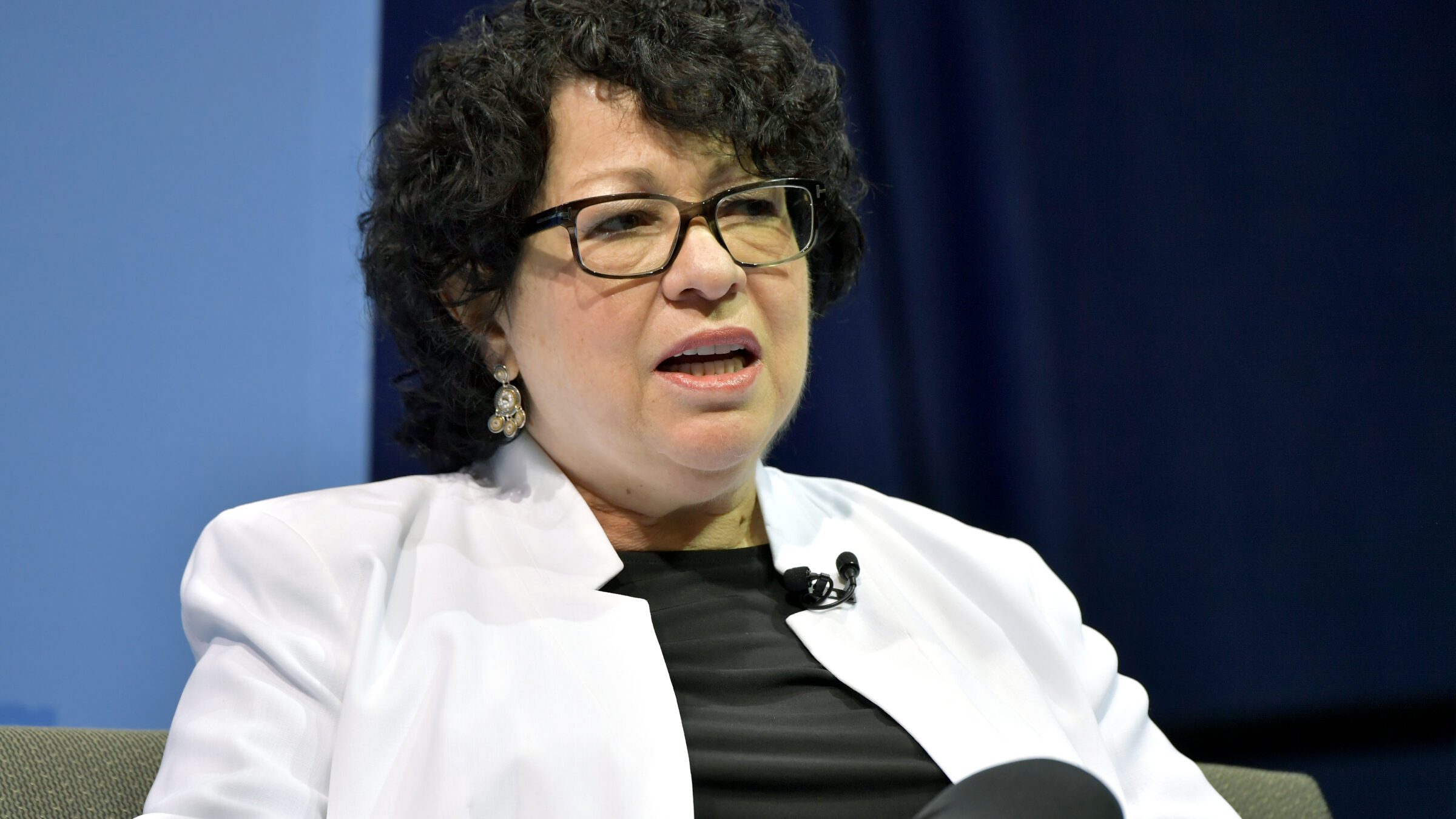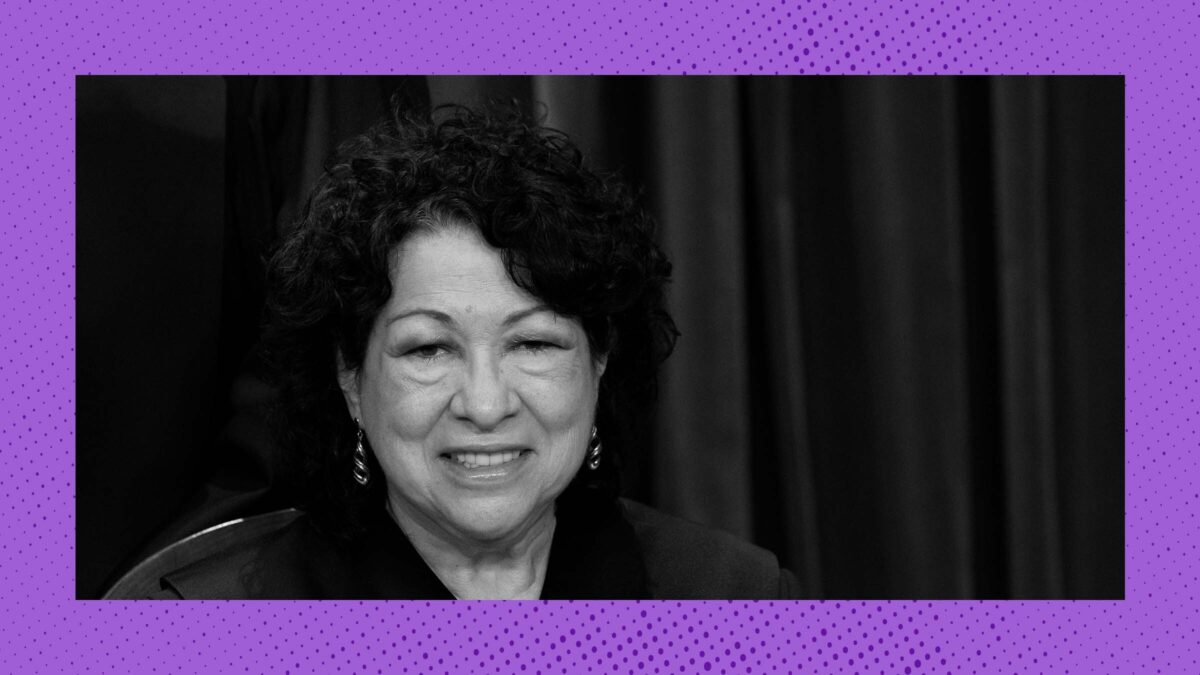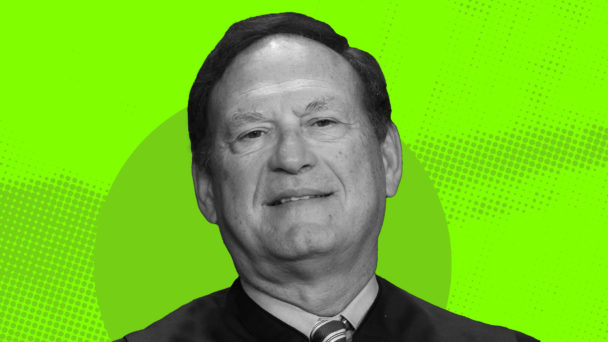Justice Sonia Sotomayor is fed up with her job. “I live in frustration,” Sotomayor told the audience at a lecture at Berkeley Law on Monday—possibly the most relatable thing a Supreme Court Justice has ever said. The 69-year-old justice, who said she’s “tired” and “working harder than I ever had,” also reflected on the responsibility she feels to push back against the worst harms the Court inflicts. “Every loss truly traumatizes me in my stomach and in my heart,” she said. “But I have to get up the next morning and keep on fighting.”
These sentiments are, in and of themselves, not surprising. Just last week, the Court allowed Alabama to proceed with a gruesome experimental execution over the dissent of the liberal justices. And days before that, only two defections from the conservative supermajority prevented the Court from endorsing Texas’s Confederacy-reminiscent rejection of federal supremacy over the nation’s immigration policy. It makes sense that Sotomayor would be having a tough time when she’s trapped in a three-justice minority, unable to prevent the Court’s Republicans from acting on their misplaced desire for vengeance against marginalized people. Plus, if you nominated me for a job where I would spend the rest of my professional life sitting next to Sam Alito, I would genuinely not know if I were being promoted or punished.

When you get the Alito draft and it’s 193 pages (Photo by Paul Marotta/Getty Images)
The surprising thing about Sotomayor’s statements isn’t that she believes them—it’s that she said them in public. Members of the legal profession are notoriously bad at policing said profession, and admitting when the actors within it deserve disdain. When judges do actually acknowledge the real problems with how the legal system functions, they sometimes risk professional consequences: For example, it took months for North Carolina Supreme Court Justice Anita Earls to get the state’s judicial ethics commission off her back just for making the objectively true statement that judges are just people and people have biases.
Occasionally, liberal justices make allusions to the Court’s bad behavior in public comments, praying their colleagues will take the hint and change their ways. When the Court’s approval rating plummeted after it overturned Roe v. Wade, for instance, Justice Elena Kagan publicly remarked that the Court builds public confidence when it is “acting like a court and not acting like an extension of the political process.” At other times, the liberals appear incorrigibly oblivious. Former Justice Stephen Breyer, for example, claimed that politics do not impact the court’s decision-making in his 2021 book, The Authority of the Court and the Peril of Politics, which published less than a year before Roe’s disappearance: “If I catch myself headed toward deciding a case on the basis of some general ideological commitment, I know I have gone down the wrong path, and I correct course,” Breyer wrote. “My colleagues think the same way.”
This approach has the problem backwards. Liberal justices are extremely well-positioned to see the Supreme Court’s dysfunction up close, and they should use their authority to highlight the system’s failures. The justices don’t face real risks to their job security, and after the decisions of the past several years, it seems unlikely that criticizing colleagues would jeopardize cross-ideological coalitional rulings that barely exist in the first place. Speaking out would potentially make the Supreme Court cafeteria marginally more awkward, but missing out on lunches with Clarence Thomas doesn’t seem like much of a sacrifice.
Politely dancing around legal wrongdoing just perpetuates those wrongs. Imagine the alternative: What if someone on the Court called for term limits? What if a justice urged Congress to reign in the supermajority by expanding the Court or limiting its jurisdiction? What if a justice said the Court’s make-believe code of conduct needs a real enforcement mechanism? If the justices spoke up—more often and more explicitly—they would send a powerful signal about the real threat the Court poses to an inclusive democratic society, inviting more scrutiny and, hopefully, action.
During her lecture, Sotomayor was asked to give guidance to discouraged law students, and she asked her own question in response. “What choice do you have but to fight the good fight?” She continued, “You can’t throw up your hands and walk away.” Sotomayor is right that fighting is the only option. But the legal left needs to think more expansively about how and where that fight can take place. Sometimes it’s on the bench, sometimes it’s in a bully pulpit. And hey, if she wants to spend even more time sounding the alarm even more loudly—well, Democrats control the Senate and the White House for at least ten more months.




